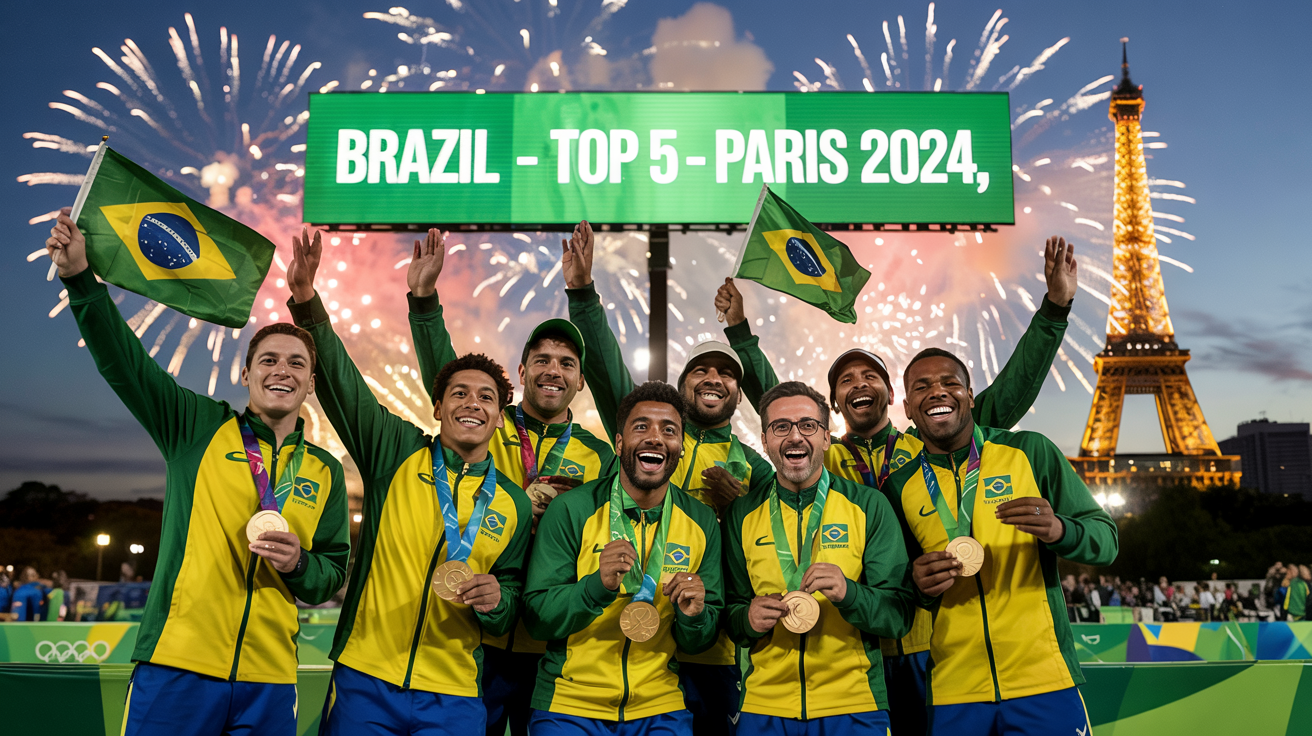In a defining moment for the country’s sporting legacy, Brazil achieved its best-ever performance at a Paralympic Games, finishing in fifth place overall at the Paris 2024 Paralympics. With a stunning total of 89 medals, including 25 golds, the Brazilian delegation cemented its status as a global Paralympic powerhouse and the leader in the Southern Hemisphere.
The results were more than numbers — they reflected decades of investment, talent development, and a cultural shift toward inclusion and excellence in adaptive sport.
A Performance for the History Books
The final medal tally for Brazil was:
- 25 Gold
- 36 Silver
- 28 Bronze
This placed Brazil behind only China, the United States, Great Britain, and Ukraine — all of which have significantly larger budgets and longer Paralympic histories. Brazil’s fifth-place finish surpassed expectations and beat its previous best result (seventh place in Tokyo 2020).
Athletes competed in over 20 disciplines, with standout performances across swimming, athletics, goalball, judo, cycling, and rowing.
Star Athletes Lead the Way
Several Brazilian athletes made headlines with their performances:
Carol Santiago (Swimming)
Dominated the pool with 4 gold medals and 1 silver, solidifying her place among the top para-swimmers in the world. Her consistency and speed were unmatched in the S12 classification.
Yeltsin Jacques (Athletics)
Won gold in the 1500m and 5000m T11 events, showcasing endurance and determination with emotional finishes that moved fans and commentators alike.
Mariana D’Andrea (Powerlifting)
Retained her gold medal in the up to 73kg category, breaking her own Americas record in the process. Her victory speech emphasized the strength of women in sport and the power of perseverance.
Brazilian Goalball Men’s Team
Secured a silver medal after an intense final against Lithuania, demonstrating Brazil’s continued dominance in the sport.
Growth and Preparation Behind the Success
The Brazilian Paralympic Committee (CPB) has credited long-term planning for the result, pointing to:
- High-performance training centers, such as the CPB Training Center in São Paulo.
- Talent identification programs in schools and local communities.
- Financial support and scholarships provided to over 400 athletes across the country.
- Partnerships with universities for performance analysis and injury prevention.
This strategic ecosystem, developed after Rio 2016, has created a sustainable pipeline of athletes prepared to compete at the highest level.
A Nation Inspired
The Brazilian public followed the Games with unprecedented enthusiasm. Viewership numbers broke Paralympic records on national TV, and social media was flooded with messages of pride, celebration, and admiration for the athletes.
Several medalists were invited to appear on mainstream talk shows, children’s programs, and educational campaigns — increasing their visibility and reinforcing their role as national heroes.
The Ministry of Sports has announced that a nationwide “Paralympic Caravan” will visit schools and public squares throughout 2025, bringing athletes face to face with the next generation.
Looking Ahead to Los Angeles 2028
With a young, hungry core and robust institutional support, Brazil is now looking to Los Angeles 2028 with even greater ambition.
CPB President Mizael Conrado summarized the vision:
“We’re not celebrating the end of a journey — we’re celebrating the launch of a new chapter. Our athletes have proven that Brazil belongs at the top, and we intend to stay there.”
Plans for additional training hubs in Brazil’s North and Northeast regions are already underway, and several Paris 2024 debutants have committed to full-time preparation for the next Games.
Conclusion: More Than Medals
Brazil’s performance at Paris 2024 was historic not just for the medal count, but for the way it redefined national pride. It was a statement to the world that resilience, inclusion, and excellence are not just ideals — they are achievable realities.
As the athletes return home to heroes’ welcomes, one message echoes across the nation: Paralympic sport is not separate from Brazilian sport — it is at its very heart.
